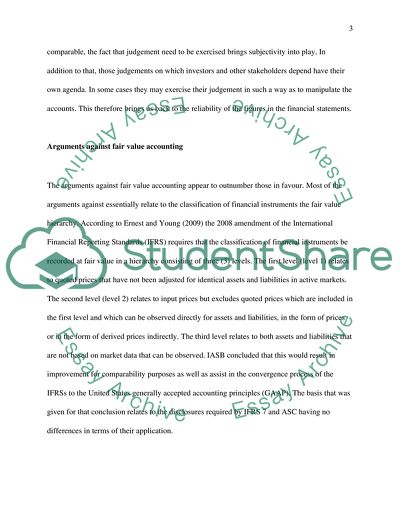Cite this document
(“Critically discuss the arguments for and against the use of fair Essay - 1”, n.d.)
Retrieved from https://studentshare.org/miscellaneous/1576957-critically-discuss-the-arguments-for-and-against-the-use-of-fair-values-in-the-preparation-and-presentation-of-financial-statements-cite-literature-to-support-your-answer
Retrieved from https://studentshare.org/miscellaneous/1576957-critically-discuss-the-arguments-for-and-against-the-use-of-fair-values-in-the-preparation-and-presentation-of-financial-statements-cite-literature-to-support-your-answer
(Critically Discuss the Arguments for and Against the Use of Fair Essay - 1)
https://studentshare.org/miscellaneous/1576957-critically-discuss-the-arguments-for-and-against-the-use-of-fair-values-in-the-preparation-and-presentation-of-financial-statements-cite-literature-to-support-your-answer.
https://studentshare.org/miscellaneous/1576957-critically-discuss-the-arguments-for-and-against-the-use-of-fair-values-in-the-preparation-and-presentation-of-financial-statements-cite-literature-to-support-your-answer.
“Critically Discuss the Arguments for and Against the Use of Fair Essay - 1”, n.d. https://studentshare.org/miscellaneous/1576957-critically-discuss-the-arguments-for-and-against-the-use-of-fair-values-in-the-preparation-and-presentation-of-financial-statements-cite-literature-to-support-your-answer.


